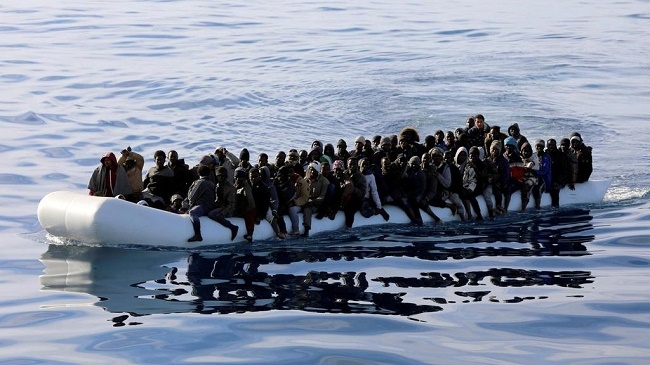
Thousands of migrants die each year on their journeys to the promised land offered by human trafficking crime organisations. (Photo: Reuters)
David Beasley, Executive Director of the World Food Programme (WFP), warned that the militants fleeing the Middle East after the collapse of the “Islamic Kingdom”, are moving to the Sahel, where they will collaborate with other extremist groups, such as al-Qaeda, al-Shabaab, and Boko Haram. According to Beasley, the European leaders may face a much larger migration crisis than the crisis caused by the conflict in Syria if they do not begin to deliver food aid to the Sahel and help to stabilise the region. Since the implementation of the immigration control activities in February 2016 to 2017, the European functional forces have saved more than 285,000 migrants in the Mediterranean Sea and another 2,000 in the desert. Despite Europe’s attempts to rescue migrants over the past few years, many countries in the “Old Continent” have shown signs of fatigue with the migrant influx from Africa. It was one of the reasons why Italy and Malta recently refused to open their ports to France’s rescue ship Aquarius to anchor after the vessel saved more than 600 migrants off the Libyan coast. The incident has led to tension between several European countries.
The “Old Continent” is perplexed by the wave of migration from Africa as new arrivals constantly pour onto European shores. According to the United Nations Office on Drugs and Crime (UNODC), there is a high demand for human trafficking lines, especially from refugees. Many people have no option but to accept the large payments and debts owed to traffickers so that they can find a safe destination in pursuit of a better life. However, the International Organisation for Migration (IOM) revealed that thousands of migrants die each year on their journeys to the promised land offered by human trafficking crime organisations. Crossing the Mediterranean is the most dangerous journey, accounting for about 50% of the total number of deaths. Migrants are also victims of violence, rape, robbery, abduction, and extortion.
As the continent directly influenced by the wave of migration from the Middle East and Africa, Europe is facing a decisive test for the future of the European Union (EU), as they have to seek ways to alleviate intra-bloc tensions concerning the issue of immigrants. After the European countries passed around the reception of migrants, as they did with the Aquarius rescue ship in the Mediterranean, German Prime Minister Angela Merkel reiterated the need to work out a European-level solution for this issue, seeing it as one of the most important factors in cohesive and united Europe. The German PM is to hold a meeting between the EU countries in order to discuss the issue of migration. Despite being a pioneering country in implementing an open-door policy for immigrants, Germany has also fallen into a state of confusion due to the deep internal disagreement over their refugee policy. The fierce debate surrounding immigration policy is threatening to break up the ruling coalition in Germany. Meanwhile, French President Emmanuel Macron and Italian PM Giuseppe Conte agreed that the EU should set up centres responsible for dealing with asylum dossiers, which will be based in the countries of those people who want to migrate to Europe. The French and Italian leaders also called on the EU to change its asylum provisions, which are leaving gateway nations, such as Greece and Italy, overburdened due to the wave of illegal migrants.
European countries are still struggling to find a solution to the migration problem, but the deadlocks in the issue led to the recent incident with the Aquarius rescue ship. More than 600 people aboard this ship have already docked in Spain’s Valencia port, ending a horrific cruise week long ordeal, however, this is only a temporary solution. The fierce debate in Europe concerning how to deal with the matter has not yet come to an end. The Red Cross and Doctors Without Borders warned that Europe needs to change its immigration policy to stop thousands of migrants from dying at sea in their attempt to reach the continent. Nonetheless, it is impossible for Europe to unilaterally resolve the problem without coordination with the African countries on the other side of the Mediterranean, the starting point of dangerous ocean-crossing cruises that threaten the lives of countless people seeking refuge./.
NDO
 IMF predicts Thai growth at 1.6% for 2026
IMF predicts Thai growth at 1.6% for 2026



